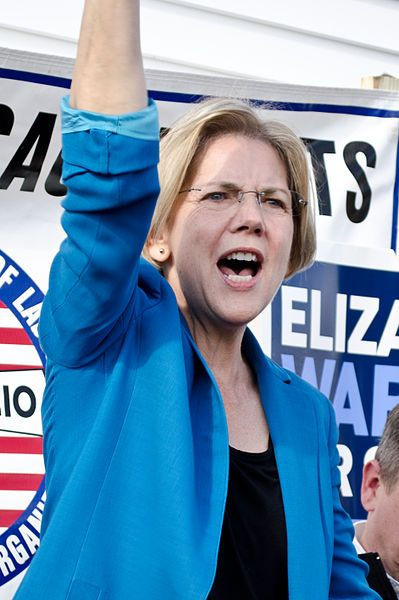
A $22 minimum wage may become a reality if freshman Sen. Elizabeth Warren's, D-Mass., recent comments spark further debate anytime soon. Warren spoke about the issue at a hearing of the Senate Committee on Health, Education, Labor and Pensions. Addressing Professor Arindrajit Dube of the University of Massachusetts-Amherst, Warren cited a 2012 study claiming the minimum wage would currently rest at $21.72 if wage increases per worker mirrored their increases in productivity over the last 45 years.
"So my question is Mr. Dube, with a minimum wage of $7.25 an hour, what happened to the other $14.75? It sure didn't go to the worker," Sen. Warren said. According to Peter Weber, Warren wasn't openly advocating for a tripling in the current $7.25 minimum wage but instead extrapolating on a point made in the Center for Economy and Policy Research's study. Weber said Warren would ideally like to see a $10 minimum wage. This supposition puts her more in line with the recognized leader of her party in the House.
Minority Leader Nancy Pelosi, D-Calif., recently proposed a $10.10 minimum wage following President Barack Obama's request for a $9 baseline in his 2013 State of the Union address. In response to criticisms on social media regarding her statements, Warren said she is "asking the right questions" about the minimum wage.
While many teenagers and an increasing amount of young graduates in the slumping economy depend on minimum wage work to help pay for school and personal necessities, some say raising the minimum wage may actually hurt those exact folks most.
James Sherk of the Heritage Foundation in Washington D.C. calls the minimum wage "another example of good intentions gone wrong." He reiterates the common view that if people are struggling to make ends meet, then paying them more would be an obvious solution. However, he cautions that this may yield unexpected consequences. He posits that the actual minimum wage is really $0.00, as "employers do not need to hire additional workers."
"No small business owner will pay $7.25 to a worker whose efforts raise profits by $5," he said, echoing the moderately held view that government's best intentions bring inferior outcomes.
Sherk states that in this way, unemployment rises with the minimum wage as smaller organizations must adjust their balance sheets to keep up with the government's requirements.
While abolishing or instead lowering the minimum wage may seem like a heartless action against the working class of America, some say it may be part of a solution to solving the unemployment problem in the U.S. Some conservatives say that actions like these would compel the workforce to work even harder if their pay was merit based instead of government based.
It is not yet clear if these two opposing viewpoints will play themselves out on the floor of the Capitol.
© 2025 Latin Times. All rights reserved. Do not reproduce without permission.




